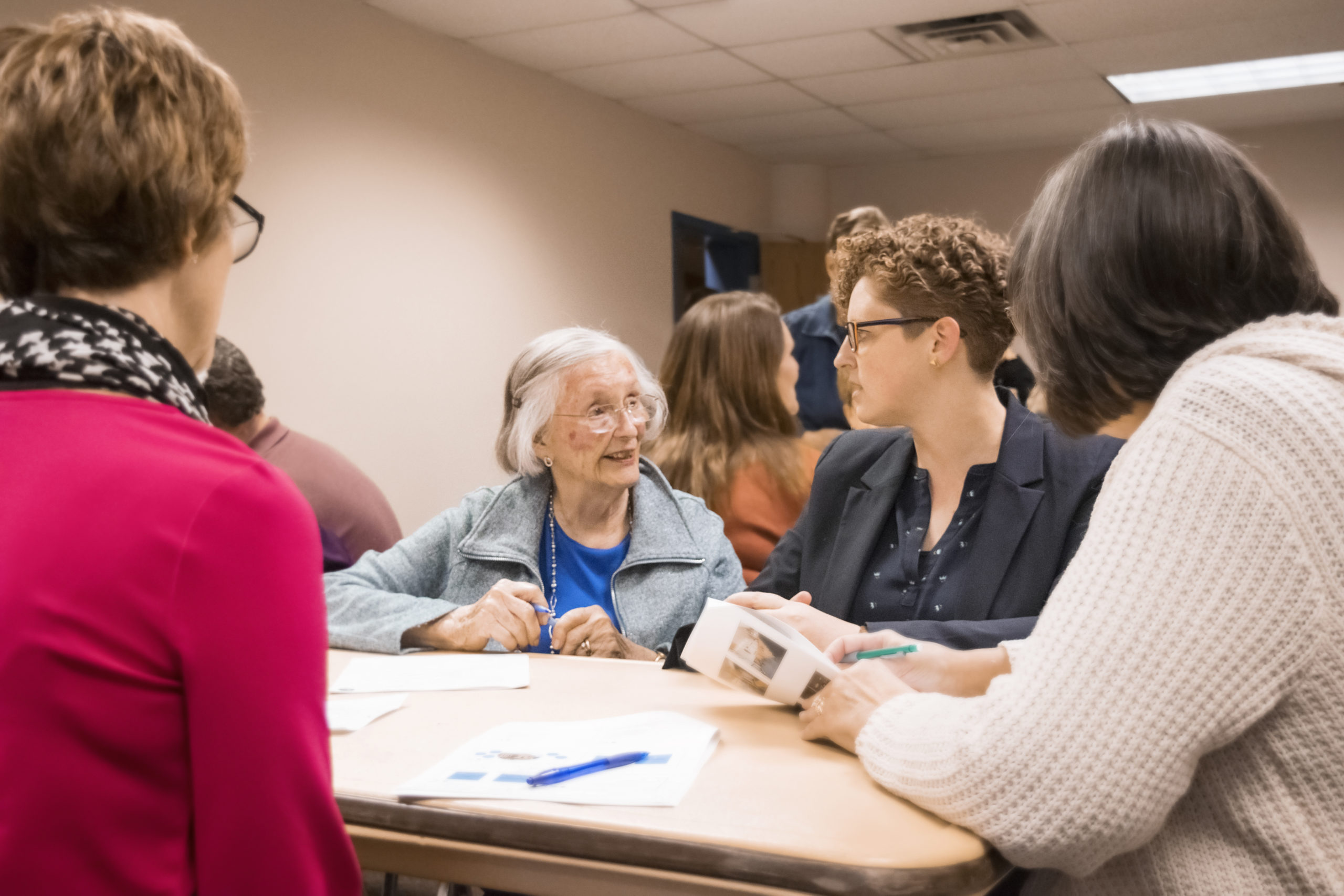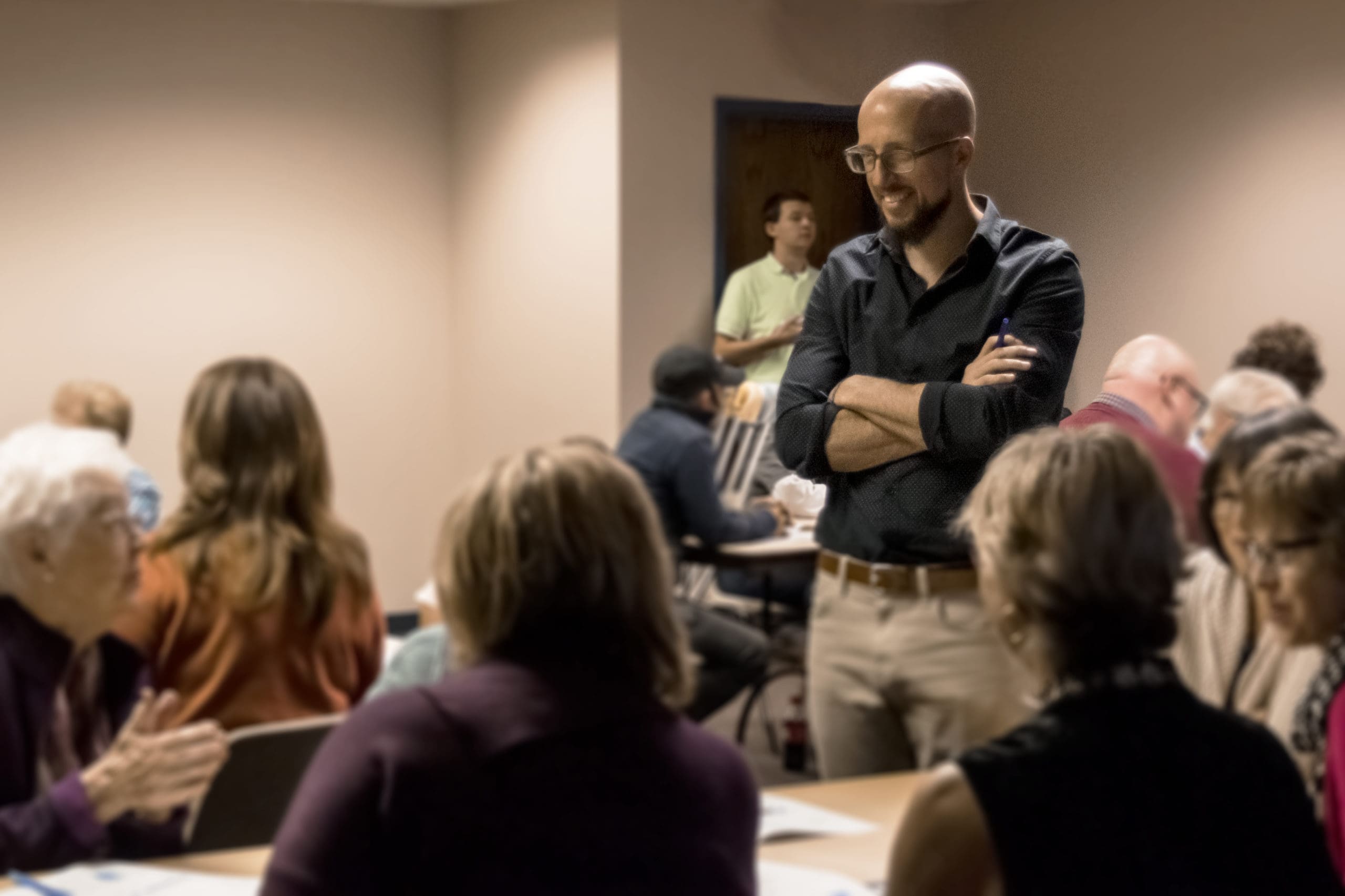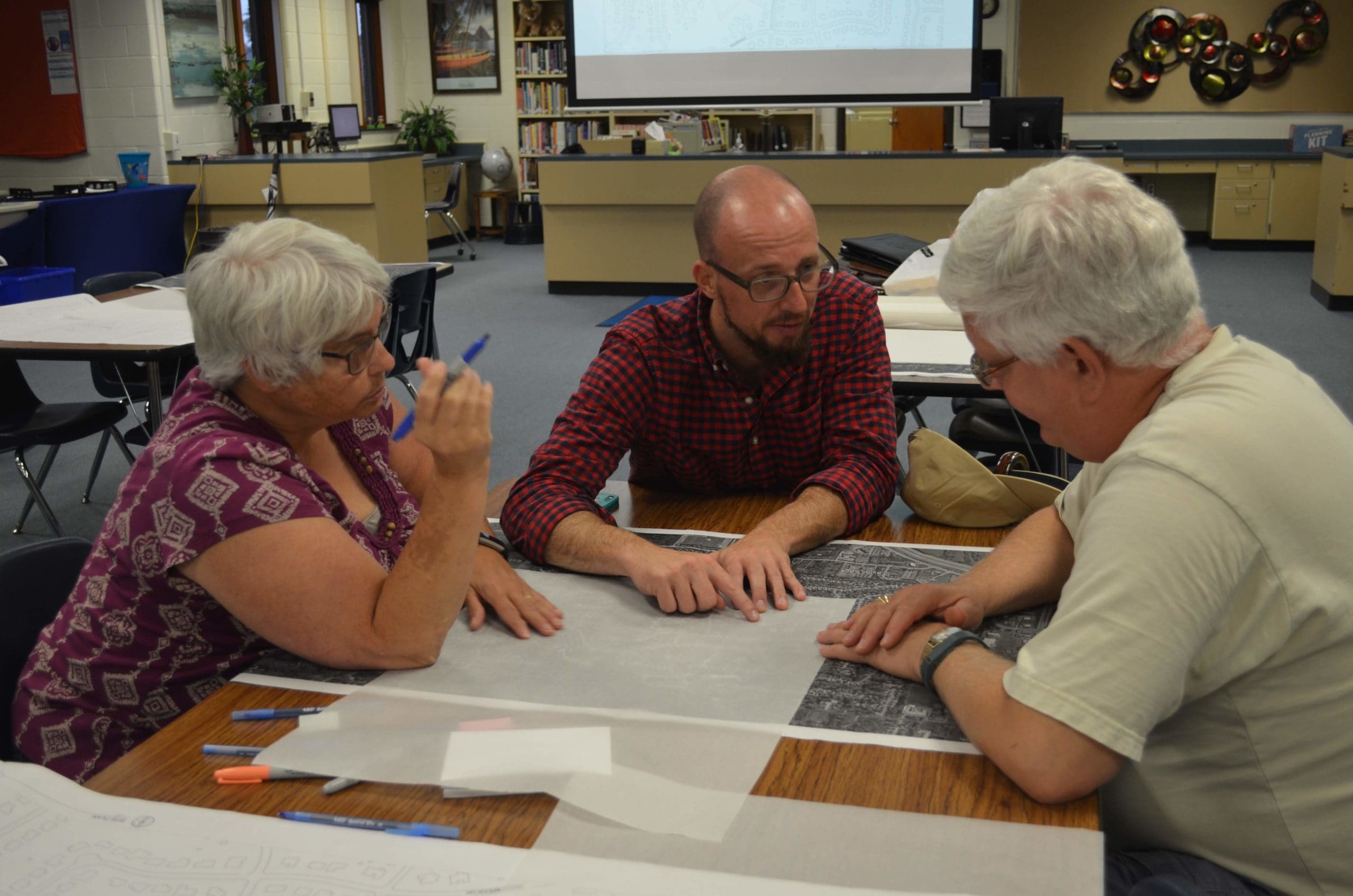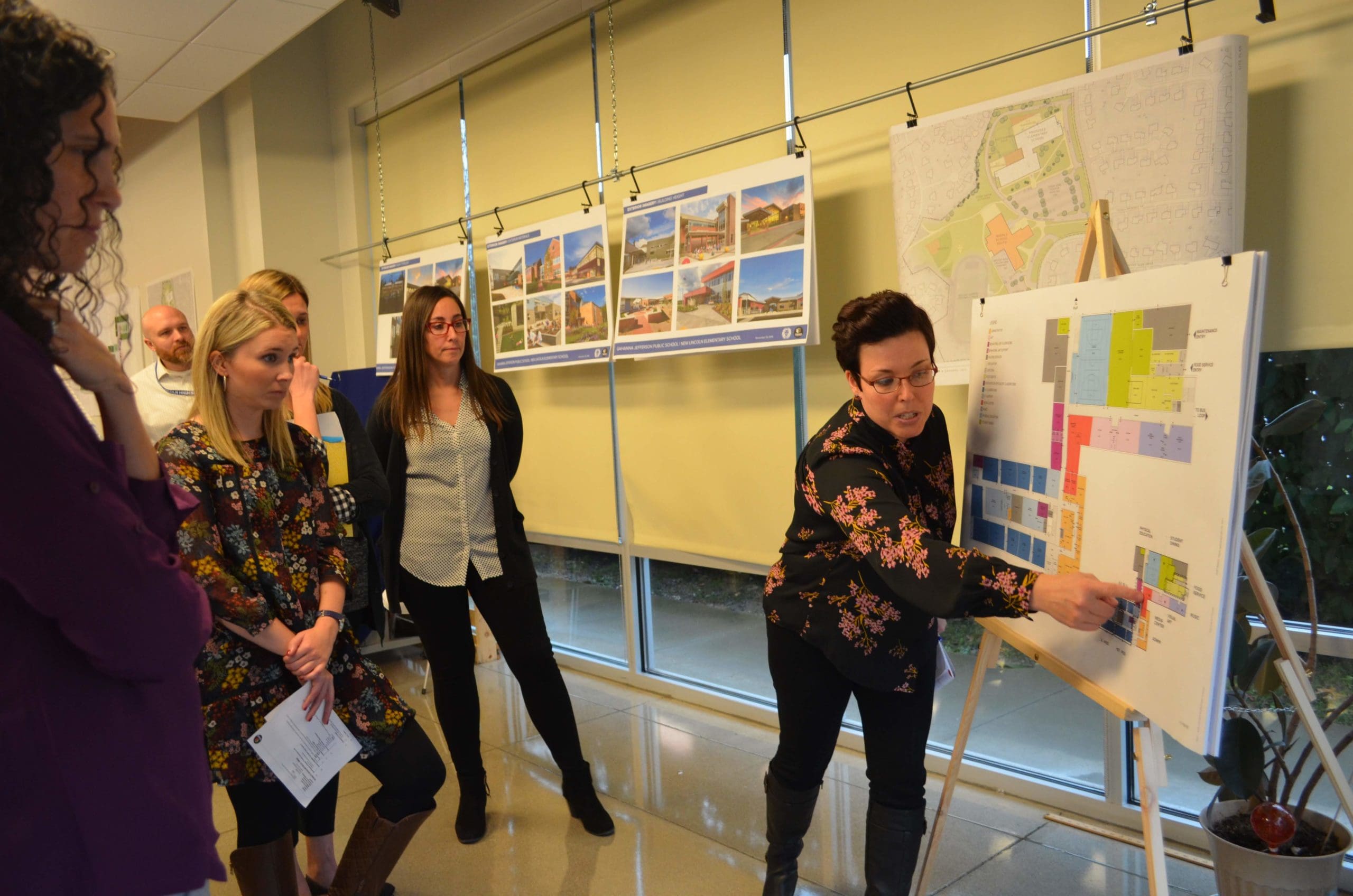Growing our Business Around Community

November 23, 2020
Author: Brent Foley, Partner
Community is important to us at TRIAD Architects. It’s how we’ve been able to grow our business. Brent Foley reflects on this below.

Brent shown above at a stakeholder engagement meeting.
Can you grow a business around community? When I was a young partner in 2009, I asked myself this question. Three years earlier, I had traveled to India. The trip was my first to the developing world. It was an exchange through Rotary, and I stayed in the homes of folks in rural and poor areas. The experience was immersive and eye-opening. The dichotomy of wealth and poverty in India is intense. Local Rotarians talked in-depth about an emerging middle class due to the liberalization of their economy. Since Rotary is a service organization, I saw local business owners debate and implement ideas on their role in the community. How should they contribute? Where were the lines between “work” and “community?” How did interpersonal relationships influence it? It was fascinating.
Seeing leaders grapple with their roles in the community and the exposure to the disparity in the developing world inspired me to get involved when I came home. I bought my first house in Canal Winchester, helped to charter a new Rotary club, and then got involved in anything and everything. Around that time, I became a partner at my firm. My partners thought I was crazy — they wanted to know what effect any of this had on the bottom line. To their credit, my initial approach did not focus at all on value or impact. I knew I was on to something, but I needed focus.
To build a business around community, your first task is to convince your partners that it is a good idea. To do so, focus on how your community focus can help to foster long-term and repeat client relationships by establishing trusted partners. To gain lasting allies, you need to engage with people in service. When you authentically gain their trust, they are much more likely to hire you for their projects.
For example, one of my partners, Bob Gibson, saw something in this idea and decided to start engaging in his community of Westerville by joining Rotary, the local chamber of commerce, and the education foundation, ultimately taking on leadership roles in all three organizations. If you want to engage your community, there is no better way than volunteering your time and fundraising for a cause. No task is too small or too insignificant. Bob was able to focus all of his professional work on his immediate community and go beyond clients’ vision to tackle tough challenges. As a result, our company and the work we do has become a vital part of that community’s ecosystem.
In order for your commitment to community to pay off, you need to be willing to take the work seriously and do the hard work, just like you would in business.
In addition to hard work, if you want to stay valuable, you need to align your efforts with your skillset so that your community understands the benefit of working with you. Another of my partners, Zach, modified Bob’s method of strategically leveraging his unique talents and went to work. He brought his blend of architectural, construction, development, and financial skills to leadership roles in his own community in Delaware. However, the process of building a community doesn’t deliver immediate results. Remember, your goal is to build trust over time. When your skills become necessary, your commitment will pay off.
When considering how to get involved, you should consider your personal stake, like Bob, and your skill sets, like Zach, and then affiliate yourself with causes you believe in. If you’re passionate about the cause, it won’t feel like you’re doing extra work. For my part, the spark of a creative community and the challenge of tackling how to be inclusive of an existing community during a period of redevelopment intrigued me and aligned with my values.
Over time, I’ve learned that it’s not enough to help your community overcome a challenge on the quest to becoming a trusted vendor. You need to go beyond the professional relationship and actually entrench yourself in the community. This is easier to do when you stand behind its vision. I believed in the Idea Foundry in Franklinton, so I joined their ranks as an active member. That led to more organizations and other leaders in the community, all of whom aligned with the same values. If you share values with your community partners, they will see you as a part of their vision.
When you begin to build your business around your community, be sure to align values, engage authentically, commit to going beyond vision, and take an honest and strategic approach to tackle challenges. This results in trust and genuine enjoyment as you work together.
Although I do not live in Canal Winchester anymore, the time I took to build community there remains valuable as we take on new projects in the area. As it turns out, you can grow a business around community.



